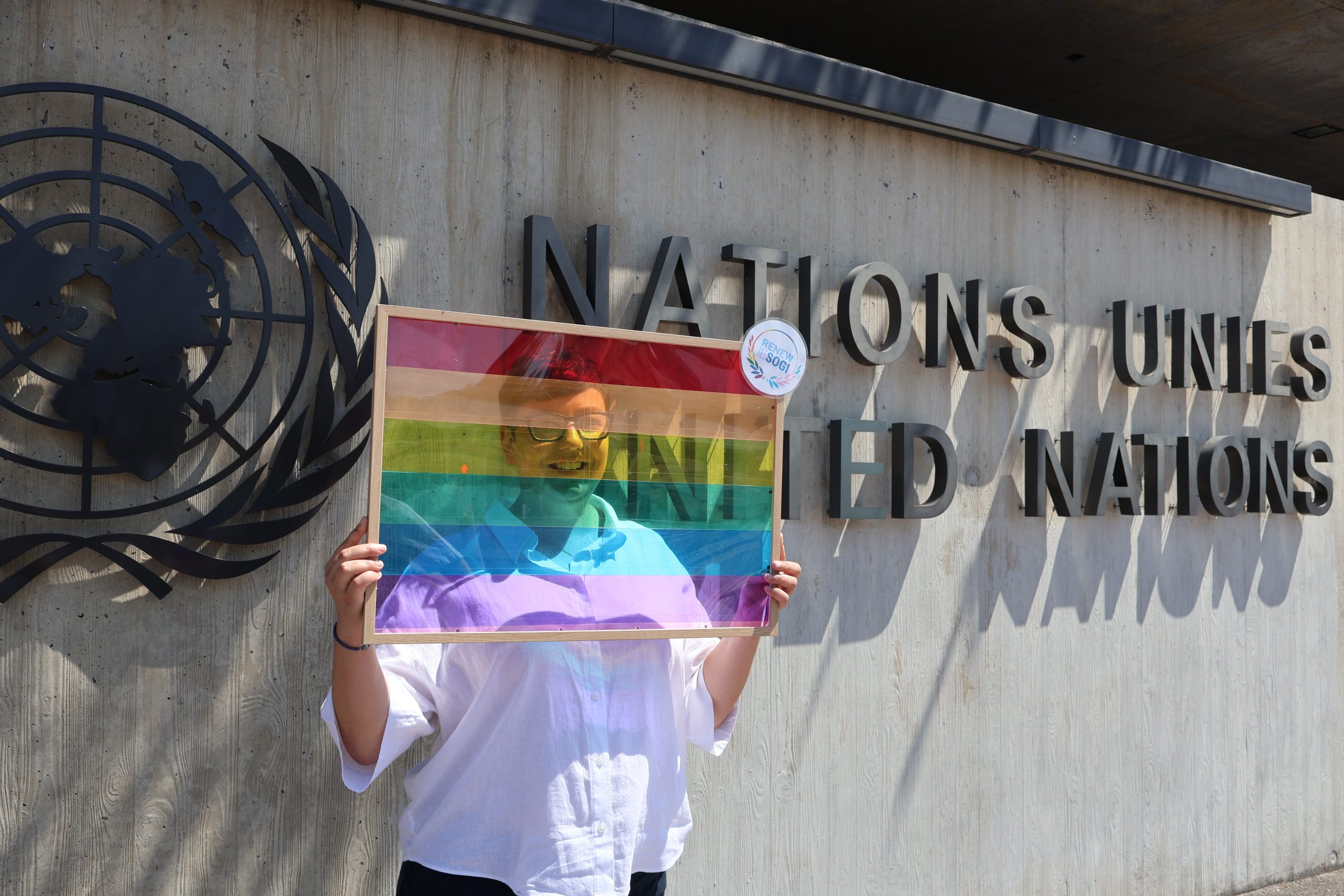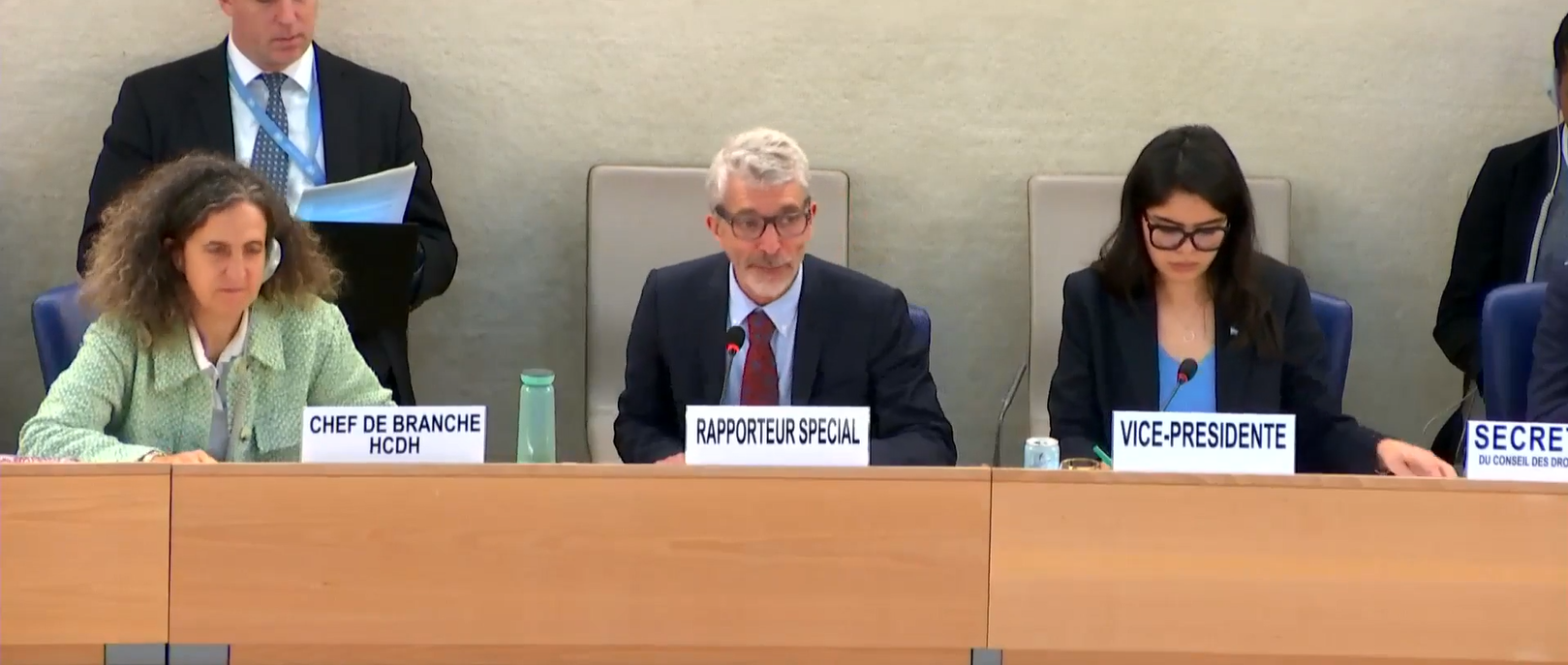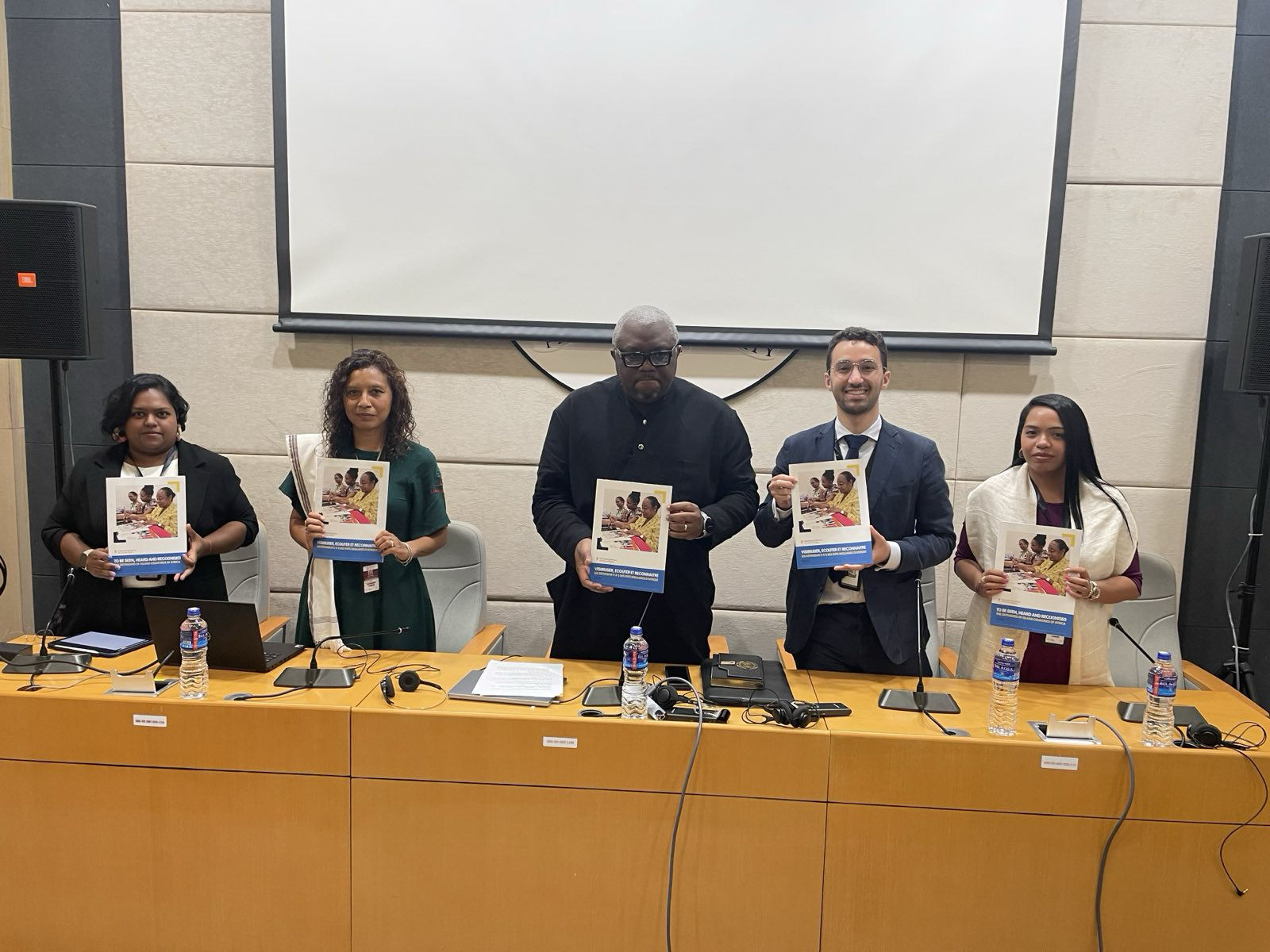During the interactive dialogue with the Independent Expert, ISHR made a joint statement welcoming the report’s focus on the fundamental rights of freedom of assembly, association and expression; rights that are crucial for LGBT individuals and organisations.
In the statement, ISHR expressed concern about the report’s finding that States in all regions have enforced existing laws and policies, or imposed new measures, restricting freedoms of expression, peaceful assembly and association that target people based on sexual orientation and gender identity, including laws extending into the digital sphere.
‘We are specifically concerned about the trend of extreme laws being proposed and enacted, especially in Africa, such as the Ugandan anti-LGBT law, that no only criminalises LGBT identities, but also criminalises anyone advocating for LGBT persons rights’, said ISHR’s Tess McEvoy.
ISHR’s statement highlighted findings in the report that some States refuse to recognise organisations working on sexual orientation and gender identity, impose discriminatory regulations and restrict funding; often under the guise of safeguarding national interests. Beyond this, other restrictions noted in the report included excessive use of force, arbitrary detention, humiliating or degrading treatment in detention, surveillance, invasion of privacy, and doxing.
‘As the Expert states, these laws and restrictions contribute to a climate of fear and self-censorship, which enhances marginalisation and vulnerability. They also contribute to the creation of a hostile environment in which deep-rooted prejudices can be manipulated to misrepresent LGBT persons as a threat to family, society or State’, added McEvoy. In a global context where civil society space is being eroded, we welcome the Expert’s recommendations and implore States to follow them.’
Download as PDF




